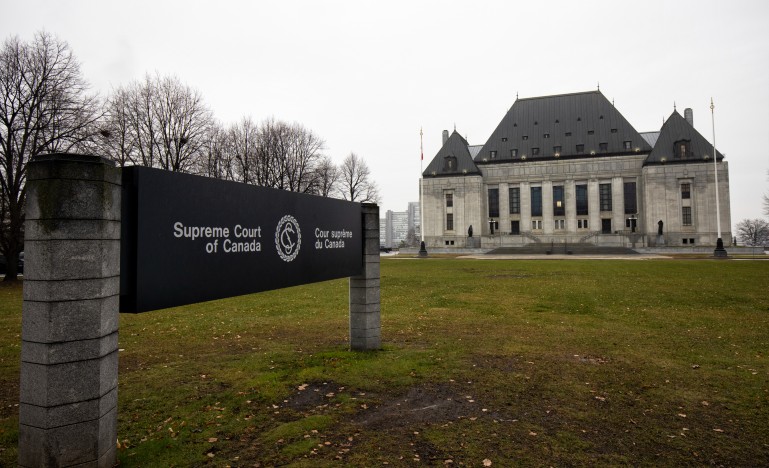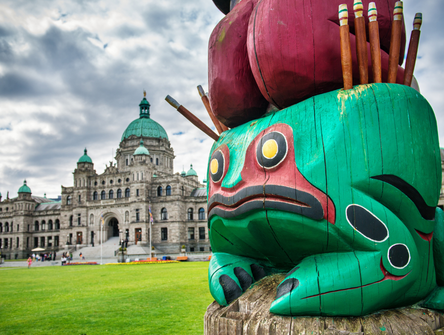Recognizing a generic right to self-government for Aboriginal peoples
Why an appeal to the Supreme Court Canada over the constitutionality of Ottawa’s child welfare law matters.

You can lose while winning and win while losing. It happens in appeal courts all the time.
It happened to Quebec back in February when the province's Court of Appeal gave the provincial government some (but by no means all) of what it wanted when it challenged federal Indigenous child welfare legislation. It now falls to the Supreme Court of Canada (SCC) to call the toss — and those working in Aboriginal law are braced for a decision that could set the path for self-government and the reconciliation project for decades to come.
Really, Quebec lost more than it won. The province's attorney general went before the Quebec Court of Appeal (QCCA) asking it to declare Ottawa's Act respecting First Nations, Inuit and Metis children, youth and families ('the Act') beyond the constitutional pale. It argued that, first, the law interferes with Quebec's public service by dictating how child and family services must be delivered. Second, it unlawfully changes the Constitution by recognizing the Indigenous right to self-government.
And the QCCA went along with Quebec's argument to a degree — but not very far, and not in the way Quebec wanted. The court ruled that the effect of the Act's national standards on the provincial public service is marginal and not unconstitutional.
On the question of self-government, Quebec arguably got the precise opposite of what it wanted. The QCCA confirmed the existence of a generic Indigenous right to self-government in child and family welfare — one that belongs to all Indigenous communities nationwide and does not have to be fought for in court on a case-by-case, place-by-place basis.
It was the clearest recognition of an Indigenous generic right to self-government under the Constitution's section 35 ever to come from a Canadian court.
It was also a rare instance of an appeal court deliberately shunning an SCC precedent — in this case, the Pamajewon decision on self-government, which requires that Indigenous communities asserting self-government rights do so by citing their pre-contact traditions and practices. (It's just possible the QCCA wanted to avoid the awkwardness of asking Indigenous communities to prove they looked after their children before Europeans came along.)
"The decision came as a relief, actually," said Jameela Jeeroburkhan, a partner at Dionne Schulze in Montreal who has represented Indigenous clients before various appeal courts. "The Court of Appeal affirmed the principle of self-government.
"It's interesting because the arguments Quebec made before the appeal court are arguments we, as a country, seem to have moved on from, socially and politically. This could just be Quebec seeking to test the limits of its own jurisdiction."
Endorsement of that generic right by the SCC — even if the court attempts to limit its scope to child and family services alone — could accelerate the entire reconciliation process, said Robert Hamilton, an associate professor in the University of Calgary's faculty of law who studies Aboriginal law.
"It cracks the door open to its application in other policy areas," he said. "Education, health services, languages — these are all policy areas that are core to Indigenous life. So we may be moving away from that more restrictive (Pamajewon) test."
"I think it would be challenging for the SCC not to affirm that Indigenous communities have the right to make decisions about their children and families," said Kate Gunn, a partner at First Peoples Law in Vancouver.
"I anticipate the court's decision will be limited to the issue of jurisdiction over children and families on this appeal. But the court's reasons should give us insight into how willing the Supreme Court will be to recognize and affirm other section 35 rights on a generic basis in the future."
The generic right would grease the wheels of reconciliation. The other key element of the QCCA's decision — its rejection of the doctrine of paramountcy in the Act — would slam on the brakes.
The Act includes a mechanism to give Indigenous child and family welfare laws the force of federal laws, allowing them to prevail over conflicting provincial laws. The QCCA called it unconstitutional.
"In this regard," said the QCCA decision, "the provision alters the fundamental architecture of the Constitution and is ultra vires."
According to the QCCA, this shouldn't be a problem for Indigenous communities since they would have recourse to the Sparrow test, established in R v. Sparrow in 1990. The test compels governments to justify infringements of Indigenous rights with appeals to "valid legislative objectives," consultation and compensation.
On paper, the Sparrow test appears to favour Indigenous parties; it's considered a very high legal hurdle for provincial or federal legislation to overcome. But deploying the Sparrow test in court takes time and money. And that, said Claire Truesdale of JFK Law, tilts the table against Indigenous challengers.
"The Court of Appeal suggested that Indigenous claimants should usually prevail under this test," said Truesdale, who practises Aboriginal law.
"But that ignores the reality on the ground, where provincial and federal governments have vastly more resources and time for litigation. They can infringe upon a right and then leave it to the Indigenous party to haul them through the courts."
So at the end of the day, the SCC could endorse a (limited) generic right to self-government that could spread to other areas of law, while slowing down the process of implementing such laws by rejecting paramountcy.
Whatever it does, the ripple effects will be lasting. The Act is a prototype — a model for getting Indigenous communities out from under the Indian Act and reforming Canadian law along the lines of the United Nations Declaration on the Rights of Indigenous Peoples (UNDRIP).
"If the court recognizes a generic right of self-government, the UNDRIP project becomes easier in that regard," said Hamilton.
And the SCC may feel pressure to keep the Act functional. Indigenous child and family welfare services are in crisis across the country; according to one estimate, Indigenous children account for 50% of kids in foster care but only 7% of Canada's youth population. Clearly, the existing arrangements are failing Indigenous families — and dry arguments about federal and provincial jurisdiction don't offer solutions.
"The state of crisis is a fact — the Court of Appeal acknowledged it. It said that change is needed," said Truesdale.
"Which is why I do think the court will recognize the generic right to self-government. This is a very compelling case. It's about children and the need for every community to look after their children. If the generic right is going to be recognized anywhere, it'll be here."


